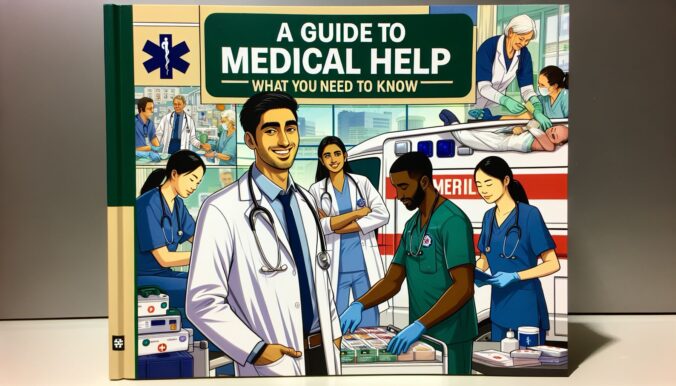When it comes to your health, it’s important to know where to turn for medical help. From minor ailments to major emergencies, having a guide to navigate the healthcare system can make all the difference in getting the care you need. In this article, we will provide you with a comprehensive guide to medical help, covering everything from finding a primary care provider to knowing when to seek emergency assistance.
Finding a Primary Care Provider
The first step in obtaining medical help is finding a primary care provider. This could be a family doctor, internal medicine physician, or nurse practitioner. Your primary care provider will be your first point of contact for any health concerns and will help coordinate your overall healthcare needs. When looking for a primary care provider, consider factors such as their location, office hours, and whether they accept your insurance.
Urgent Care vs. Emergency Room
In some cases, you may need medical help outside of your primary care provider’s office hours. When faced with a non-life-threatening illness or injury, urgent care centers can provide timely and convenient care. However, if you are experiencing a medical emergency, it’s important to go to the nearest emergency room or call 911. Symptoms such as chest pain, difficulty breathing, or sudden weakness should never be ignored.
Telemedicine
In recent years, telemedicine has emerged as a convenient option for obtaining medical help. Through virtual appointments with healthcare providers, you can receive medical advice, prescriptions, and even referrals to specialists. Telemedicine is especially beneficial for individuals with limited mobility, those living in remote areas, or during times of widespread illness, such as a pandemic.
Health Insurance
Understanding your health insurance coverage is crucial when seeking medical help. Familiarize yourself with your policy’s benefits, including copayments, deductibles, and out-of-pocket maximums. Being informed about your insurance can help avoid surprises and financial strain when seeking medical care.
Mental Health Support
In addition to physical health, mental health is an important aspect of overall well-being. If you are experiencing symptoms of anxiety, depression, or other mental health concerns, don’t hesitate to seek professional help. Many primary care providers offer mental health services, or you can contact a therapist or counselor for additional support.
Conclusion
Having a guide to medical help can empower you to navigate the healthcare system with confidence. By finding a primary care provider, knowing when to seek urgent or emergency care, understanding your health insurance, and prioritizing mental health support, you can take control of your health and well-being. Remember, your health is your most valuable asset, so don’t hesitate to seek medical help when needed.
